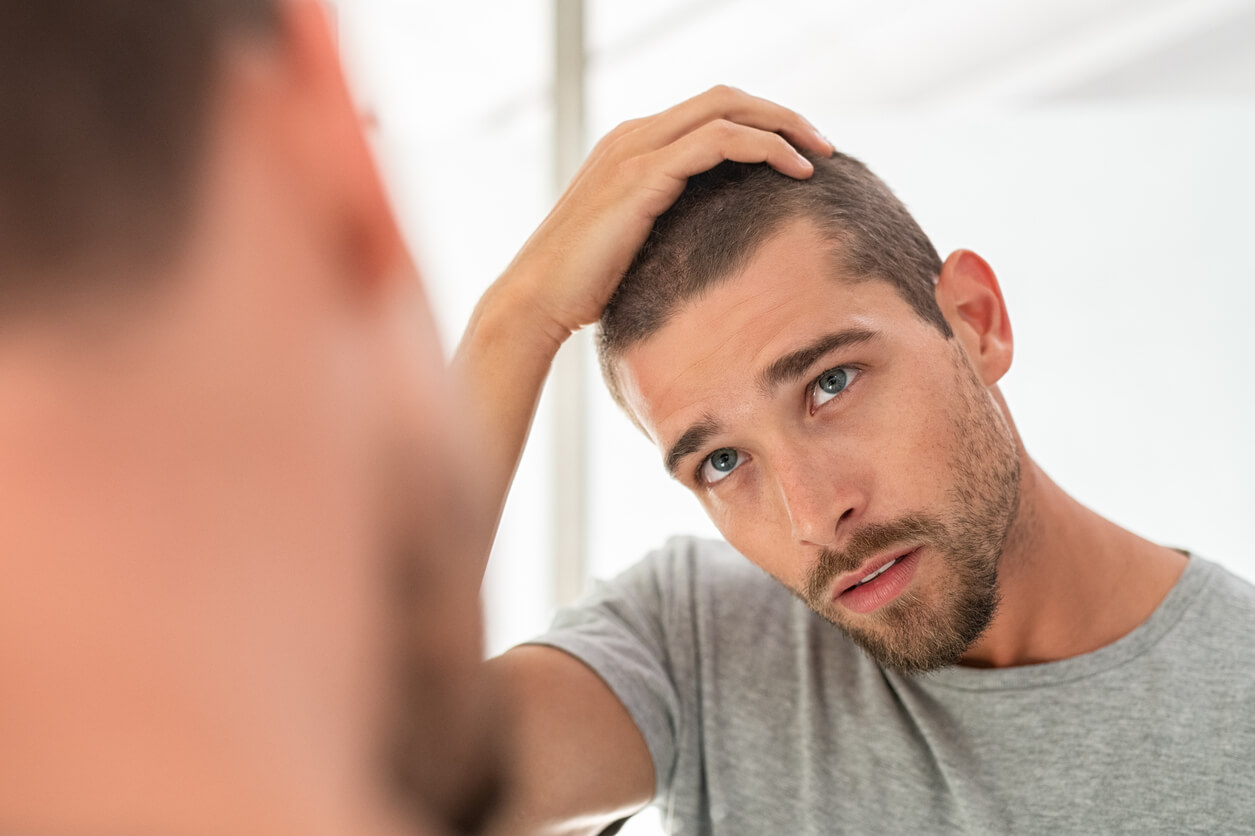Regardless of age and gender, hair loss is a painful reality for millions of people. It challenges lifelong conceptions of self-identity and forces them to physically face an altered vision of themselves daily. For people with diabetes, hair loss can feel like the proverbial stick that broke the camel’s back. But does diabetes cause hair loss?
Whether you have been diagnosed with type 1 or type 2 diabetes, the bottom line is that your body cannot produce or use insulin efficiently. With careful management, many of the adverse effects of the condition can be controlled, but that can be easier said than done. For diabetics who are struggling to manage their condition, there is a real risk that sugar will build up in their bloodstream. Left untreated, elevated sugar levels can damage your organs and your blood vessels, which may be responsible for hair loss.
Oxygen and Hair Growth
Any damage to your blood vessels limits the ability of your body to distribute oxygen and other nutrients. In some cases, this directly affects hair growth. Hair growth occurs in three phases. We all go through a shedding phase. It relies on those hairs being re-grown and maintained during the other two phases. If the blood vessels responsible for delivering oxygen and nutrients to your hair follicles sustain damage, then your hair may not grow during its normal growth phase, resulting in a cyclical increase in noticeable hair loss.
Unfortunately, damaged blood vessels are not the only possible reason a diabetic person may experience hair loss. The physical stress of the condition can lead to negative hormonal changes, and patients with diabetes are more likely to develop hypothyroidism and alopecia areata. All of these conditions can cause significant hair loss by preventing the normal growth of hair during the growth phase. So, at least the symptoms of diabetes cause hair loss potential.
Hair Loss Prevention
If you have a recent diagnosis of diabetes, it may take some time to adjust to your new schedule. Managing your insulin levels, your sugar intake, your thyroid health, and your stress levels is difficult to do even in the best of circumstances. To keep yourself safe and healthy, maintain an open line of communication with your primary care provider. It may be beneficial to join a local support group that can answer common questions and help you deal with ableism daily.
Actively communicating and reaching out whenever needed is the best thing that you can possibly do to smooth your transition into a healthy life with diabetes. As a result, taking these steps can prevent hair loss and protect you from the more damaging side effects of unmanaged diabetes.
Addressing an Existing Problem
Even if you have already experienced hair loss, it doesn’t mean that the situation is irreversible. At Hair Specialists Houston, Dr. Cain Linville uses NeoGraft hair restoration to give patients the most natural results by transplanting solitary follicles without incisions or stitches. NeoGraft promises lasting results with little downtime. And, it is a more efficient way of transplanting hair to bare areas. Due to precise placement and a higher follicle survival ratio, NeoGraft actually can allow you to grow your own hair again without any of the adverse effects of older methods.
If you have questions about the NeoGraft hair restoration procedure, you can contact Hair Specialists Houston to schedule a consultation. Dr. Linville is double board-certified in both general and plastic surgery. His qualifications ensure that you can trust him to evaluate your current situation. He will explain what realistic expectations NeoGraft can achieve. For examples of past work and the results that NeoGraft can deliver, check out the before-and-after gallery.


